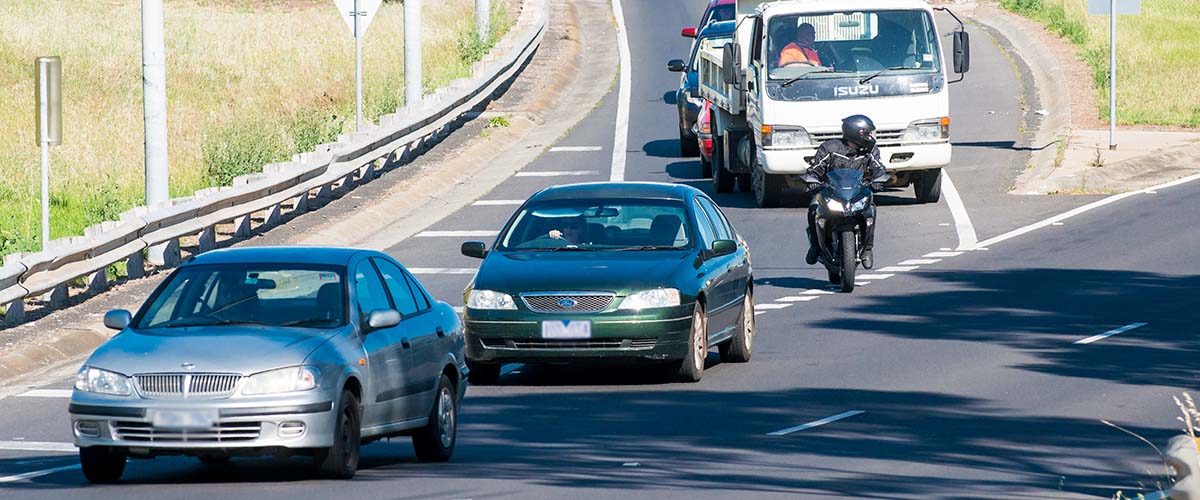The Human Rights Council this morning concluded its general debate on agenda item four on human rights situations that require the Council’s attention.
The general debate started in the previous meeting and a summary can be found here.
In the general debate, some speakers said upholding, promoting and protecting the rights of all was a fundamental responsibility of the State. All States were urged to prioritise human rights which were universal, inalienable, indivisible, interdependent and interrelated. There was a need for dialogue and respectful cooperation on human rights, both between States, as well as with civil society organizations. One speaker noted that unfortunately, politicisation was hampering the work of the Council. Universality and impartiality as principles needed to be observed.
Most speakers pointed out situations of human rights violations in many States and territories.
Many speakers highlighted the repression being experienced by human rights defenders around the world, some of whom remained in prison for their human rights work. In some cases, anti-terrorism and cybercrime laws had been used as a form of intimidation and reprisal against human rights defenders and opposition activists. Speakers were deeply concerned about the increased repression against human rights defenders and peaceful dissidents in some countries, saying that many peaceful activists had been handed lengthy prison sentences of up to 50 years, simply for exercising their right to freedom of expression. These were spent in inhumane prison conditions and were usually followed by travel bans. Additionally, in a new and worrisome trend, several human rights defenders were being detained beyond the expiry of their sentences in some countries.
The issue of State surveillance mechanisms, which were being used to silence dissent and crack down on protestors, human rights lawyers, and defenders, was also raised. Some speakers said the Council should urge all States to halt the sale and use of artificial intelligence and facial recognition systems until human rights safeguards were in place; to stop all data collection that violated citizens’ rights to privacy, freedom of association, and expression; and to halt all surveillance and censorship policies meant to identify and crack down on political dissent. It was important to establish strong legislative frameworks that were compatible with international human rights law to support the rights of freedom of expression, freedom of association, and the right to peaceful assembly.
Several speakers drew attention to the issues facing minority groups, noting that immediate measures needed to be taken to end hate speech against minorities. The Council needed to take action to end the escalation of violence against minority groups in some countries. Minority nations needed specific protection, including protection from the authorities. Promoting ethnic unity, common development, and national reunification was necessary for safeguarding the human rights of ethnic minorities. It was imperative that all victims, regardless of their ethnic or religious background, were afforded access to justice and equal protection under the law. Given the practical problems in ethnic unity and national reunification faced by some countries, it was important to take concrete measures to promote ethnic unity, common development, and national reunification so as to safeguard human rights.
Speakers noted that anti-Semitism continued to be a gathering storm of global proportions, intensifying each year. One speaker described anti-Semitism as the sadness, the fear, and the disappointment that the Jewish community had been facing for hundreds of years. In many places it was a real security risk to walk around identifiably Jewish. Member States were called on to forcefully condemn any attempt to justify, belittle or ignore hatred directed at the Jewish people. At the United Nations, the situation seemed to continually deteriorate. How could the United Nations, an international organization which aimed to make up for the violent past, keep failing the Jewish community repeatedly? Words tended to be underestimated, but the United Nations needed to consider the impact words could have and the scars they could leave.
Some speakers said that denying education to girls and women on the basis of their gender was an affront to their dignity and an infringement on their rights. It was a grave form of repression of women, meant to silence their voices and deny them any opportunity to develop their identity and improve their economic situation. It also represented a violation of the right to education enshrined in the Universal Declaration of Human Rights, the Convention on the Elimination of All Forms of Discrimination against Women, and the Convention on the Rights of the Child.
All States needed to enact legislation prohibiting forced child marriages, kidnapping, and trafficking, and abide by its international human rights commitments to combat slavery and human trafficking and uphold the rights of women and children. It was important for human rights institutions to take preventive measures to prevent and end child rights violations; nothing could justify the negligence of United Nations institutions, including the Human Rights Council, in protecting children’s rights.
Some speakers said that it was regrettable that agenda item four continued to ignore the serious and humane discussion on the negative impact of unilateral coercive measures. These measures constituted serious and flagrant violations of the human rights of entire peoples and were contrary to the purposes and principles of the Charter of the United Nations and international law. Some expressed sympathies to families affected by sanctions and those affected by economic terrorism.
Access to higher education was seriously limited by unilateral coercive measures because of the multiple impacts on the cost of education, access to scientific journals and resources, and the continued discrimination, based on nationality, against the students of sanctioned countries abroad. Unilateral coercive measures prevented money transfers between the target country and foreign universities, making it difficult for foreign students to pay their education fees, and also blocked the access of some countries to online education platforms and online libraries. Sanctions also had a serious impact on health and had created many challenges for patients and their treatment. If the international community did not act soon, this situation would become even more worrying.
Speaking in the discussion was Côte d’Ivoire, on behalf of the African Group.
Also speaking were Jameh Ehyagaran Teb Sonnati Va Salamat Iranian, Asian Forum for Human Rights and Development, Citoyens en action pour la démocratie et le développement, Youth Parliament for SDG, Rahbord Peimayesh Research and Educational Services Cooperative, International-Lawyers.Org, Institut International pour les Droits et le Développement, Association pour la défense des droits de l’homme et des revendications démocratiques/culturelles du peuple, Edmund Rice International Limited, Americans for Democracy and Human Rights in Bahrain Inc., Association MIMAN, Charitable Institute for Protecting Social Victims, Alsalam Foundation, Network of Women’s Non-governmental Organizations in the Islamic Republic of Iran, Union of Northwest Human Rights Organisation, Global Institute for Water, Environment and Health, China Society for Human Rights Studies, Association pour l’Intégration et le Développement Durable au Burundi, VIVAT International, Amnesty International, Platform for Youth Integration and Volunteerism, World Barua Organization, Indigenous People of Africa Coordinating Committee, Human Is Right, China Ethnic Minorities’ Association for External Exchanges, Coordination des Associations et des Particuliers pour la Liberté de Conscience, European Centre for Law and Justice, International Association of Jewish Lawyers and Jurists, Al-Haq Law in the Service of Man, Women’s Human Rights International Association, Ingenieurs du Monde, Institute for Protection of Women’s Rights, China NGO Network for International Exchanges, B’nai B’rith, Right Livelihood Award Foundation, Alliance Defending Freedom, Stichting Global Human Rights Defence, Iraqi Development Organization,
Also speaking were Africa Culture Internationale, United Nations Watch, Asociacion HazteOir.org, Association Internationale pour l’égalité des femmes, International Service for Human Rights, Coordinating Board of Jewish Organizations, American Association of Jurists, Helsinki Foundation for Human Rights, Iran Autism Association, World Muslim Congress, International Commission of Jurists, Maloca Internationale, Promotion du Développement Economique et Social – PDES, Association Bharathi Centre Culturel Franco-Tamoul, Youth in Technology and Arts Network, Association Culturelle Des Tamouls En France, International Muslim Women’s Union, Jeunesse Etudiante Tamoule, Tamil Uzhagam, Les Caribous Libérés, Association Thendral, Association pour le Droit de l’Homme et Le Développement Durable, Centre for Gender Justice and Women Empowerment, Organization for Defending Victims of Violence, Asociacion Cubana de las Naciones Unidas (Cuban United Nations Association), Iranian Thalassemia Society, Chunhui Children’s Foundation, Organisation pour la Communication en Afrique et de Promotion de la Cooperation Economique Internationale – OCAPROCE Internationale, Khiam Rehabilitation Centre for Victims of Torture, Association Ma’onah for Human Rights and Immigration, Institute for Reporters’ Freedom and Safety, Human Rights Now, Iran Human Rights Documentation Centre, International Career Support Organisation, United Towns Agency for North-South Cooperation, Commission africaine des promoteurs de la santé et des droits de l’homme, Bahrain jurists society, and Public Organization “Public Advocacy”.
Speaking in exercise of right of reply were Cuba, Venezuela, India, Japan, Bahrain, Armenia, Nicaragua, Russian Federation, Azerbaijan, China, Republic of Korea, Cambodia, Democratic People’s Republic of Korea, United States, Iran, Pakistan, and Tunisia.
The webcast of the Human Rights Council meetings can be found here. All meeting summaries can be found here. Documents and reports related to the Human Rights Council’s fifty-second regular session can be found here.
The Council will reconvene this afternoon at 3 p.m. to hold an interactive dialogue with the Special Rapporteur on minority issues, followed by the presentation of reports under agenda item five on human rights bodies and mechanisms, and the general debate under item five.








